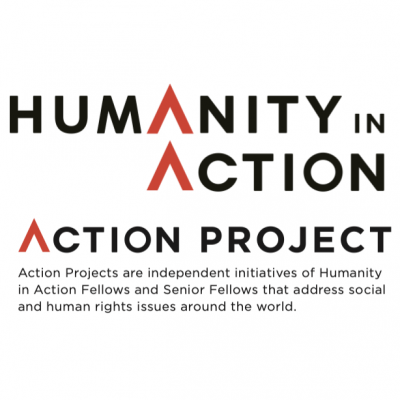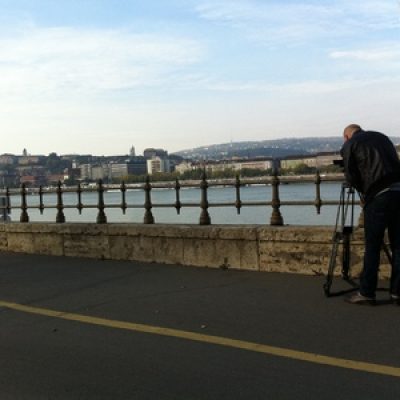Article
“DARE: Democracy in Action” addresses the urgent issue of political disengagement and voter abstention, particularly within the European context. These trends reflect a growing detachment from democratic institutions and decision-making processes, raising serious concerns about representation, legitimacy, and the long-term resilience of democratic governance.
Voter abstention presents a multifaceted challenge to democratic systems. When a large portion of the electorate, particularly moderate and informed voters, chooses not to participate, it creates a vacuum where extreme factions, driven by highly motivated supporters, can exert disproportionate influence on the election results. This not only contributes to the rise of extremist parties, but also undermines the principles of multivocality and diversity which are essential to representative governance. Additionally, high levels of abstention can result in gaps in representation, exclusions, and inequalities, weakening the legitimacy and acceptance of government decisions. Over time, this can deepen political apathy and disconnection from the political system, creating a vicious cycle of declining civic engagement threatening the stability and resilience of democratic institutions.
To address these issues, Revekka’s action project focuses on promoting civic education, with a particular emphasis on raising awareness of the paradoxes and vulnerabilities inherent in democracy. These aspects are often overlooked in well-established democratic systems, where voting is frequently seen more as a civic duty than a fundamental human right, contributing to growing disengagement from electoral and other decision-making processes.
While democracy is celebrated for its values of freedom and equality, it remains susceptible to challenges like populism, polarisation, and the erosion of rights. Acknowledging these complexities and vulnerabilities, rather than perceiving democratic systems as flawless or resilient, can encourage us to adopt a more realistic and proactive approach. For example, this understanding can motivate people to critically assess our political systems, recognize the need to balance rights with responsibilities, and remain alert against threats such as extremism and authoritarianism. Moreover, by staying engaged and taking action, people can prevent political apathy and strengthen our democratic institutions.
In response to these challenges, the project offers an open-access educational resource. Its website features a WebQuest-style interactive hub and a series of downloadable, print-ready posters for Do-it-Yourself exhibitions. These materials highlight milestones and turning points in European democratic history, examine the structural paradoxes of democratic governance, and spotlight historical and contemporary forms of civic action. Rather than presenting democracy as static or idealized, “DARE” encourages users to reflect critically on its evolution, cultivating deeper historical awareness, democratic literacy, and renewed civic curiosity.
Project Development
The project began with extensive research into the theory and history of democracy, spanning from the 18th century to the present, as well as civic movements and democratic transitions across Europe. Initially, the plan was to create a set of text-based posters accompanied by in-person workshops and events. However, the project was later adapted to respond to technical and institutional limitations and to better align with the open-access resources available.
The poster series evolved into a more visual and interactive WebQuest experience. The redesigned format encourages viewers to engage with prompts and explore themed sections linked to key milestones, paradoxes, threats, and forms of civic action. The planned online exhibition section was transformed into a WebQuest-style link hub, guiding users through curated content. Every effort has been made to select authoritative primary and secondary sources that offer well-researched perspectives.
To support educators and learners, a comprehensive WebQuest user guide and a renewable assignment framework were also developed, designed to inspire future contributions to the website and adaptations of the project’s resources. While most of the work has been completed, a portion of the “Civic Action” section, from the 1950s onward, remains in development due to limited availability of open-access materials. This section is envisioned as a living component, expandable over time through community contributions and user-generated content.
Next Steps
The project is now publicly available here. Educators, students, civic organizations and activists are invited to explore the resources, adapt the materials for local contexts, and contribute new content through the renewable assignment framework. It is hoped that the project’s reach and content will continue to grow over time, particularly through its dissemination via mailing lists and networks focused on open research, open education, open culture, democratic literacy, and civic action.
In preparation for wider outreach, key individuals in the open knowledge and civic engagement communities have already been contacted. The feedback received has been encouraging, and the project has been positively received. Based on their advice, broader public communication and dissemination efforts are scheduled to begin from September 2025 onwards, in order to attract greater attention, foster meaningful collaborations, and align with ongoing advocacy and educational initiatives in these fields.
There is also interest in using the platform as a foundation for future collaborations, including webinars, events, or funding proposals aimed at expanding civic education efforts. Ideas and partnerships through the Humanity in Action network and beyond are more than welcome




